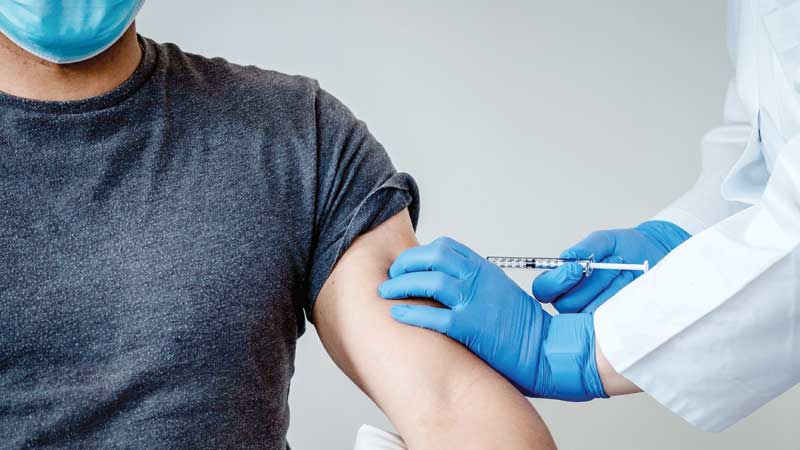

LONDON: Britain approved Pfizer’s COVID-19 vaccine on Wednesday, jumping ahead of the rest of the world in the race to begin the most crucial mass inoculation programme in history with a shot tested in wide-scale clinical trials.
Prime Minister Boris Johnson touted the greenlight from the UK’s medicine authority as a global win and a ray of hope amid a pandemic, though he recognised the logistical challenges of vaccinating an entire country of 67 million.
Britain’s move raised hopes that tide could soon turn against a virus which has killed nearly 1.5 million people, hammered the world economy and upended normal life for billions.
Britain’s Medicines and Healthcare products Regulatory Agency (MHRA) granted emergency use approval to the Pfizer-BioNTech vaccine, which they say is 95 per cent effective in preventing illness, just 23 days since Pfizer published the first data from its final stage clinical trial. “Fantastic news,” Johnson told parliament, though he cautioned that people should not get too carried away.
“At this stage, it is very, very important that people do not get their hopes up too soon about the speed with which we will be able to roll out this vaccine.” The world’s big powers have been racing for a vaccine for months to begin the long road to recovery, and getting there first may be seen as a coup for Johnson’s government, which has faced criticism over its handling of the crisis.
The approval of a shot for use close to a year since the novel coronavirus emerged in Wuhan, China, is a triumph for science, Pfizer boss Albert Bourla and his German biotechnology partner BioNTech.
Both the United States and the European Union’s regulator are sifting through the same Pfizer vaccine trial data, but have not yet given their approval. Britain’s breakneck speed drew criticism from Brussels where, in an unusually blunt statement, the EU’s drugs regulator said its longer procedure was more appropriate as it was based on more evidence and required more checks.
British leaders said that, while they would love to get a shot themselves, priority had to be given to those most in need - the elderly, those in care homes and health workers.
Amid the celebratory rhetoric, Germany’s ambassador to Britain Andreas Michaelis publicly scolded a British minister for presenting it as a national triumph.
“I really don’t think this is a national story. In spite of the German company BioNTech having made a crucial contribution, this is European and transatlantic,” Michaelis said.
— Reuters
Oman Observer is now on the WhatsApp channel. Click here



